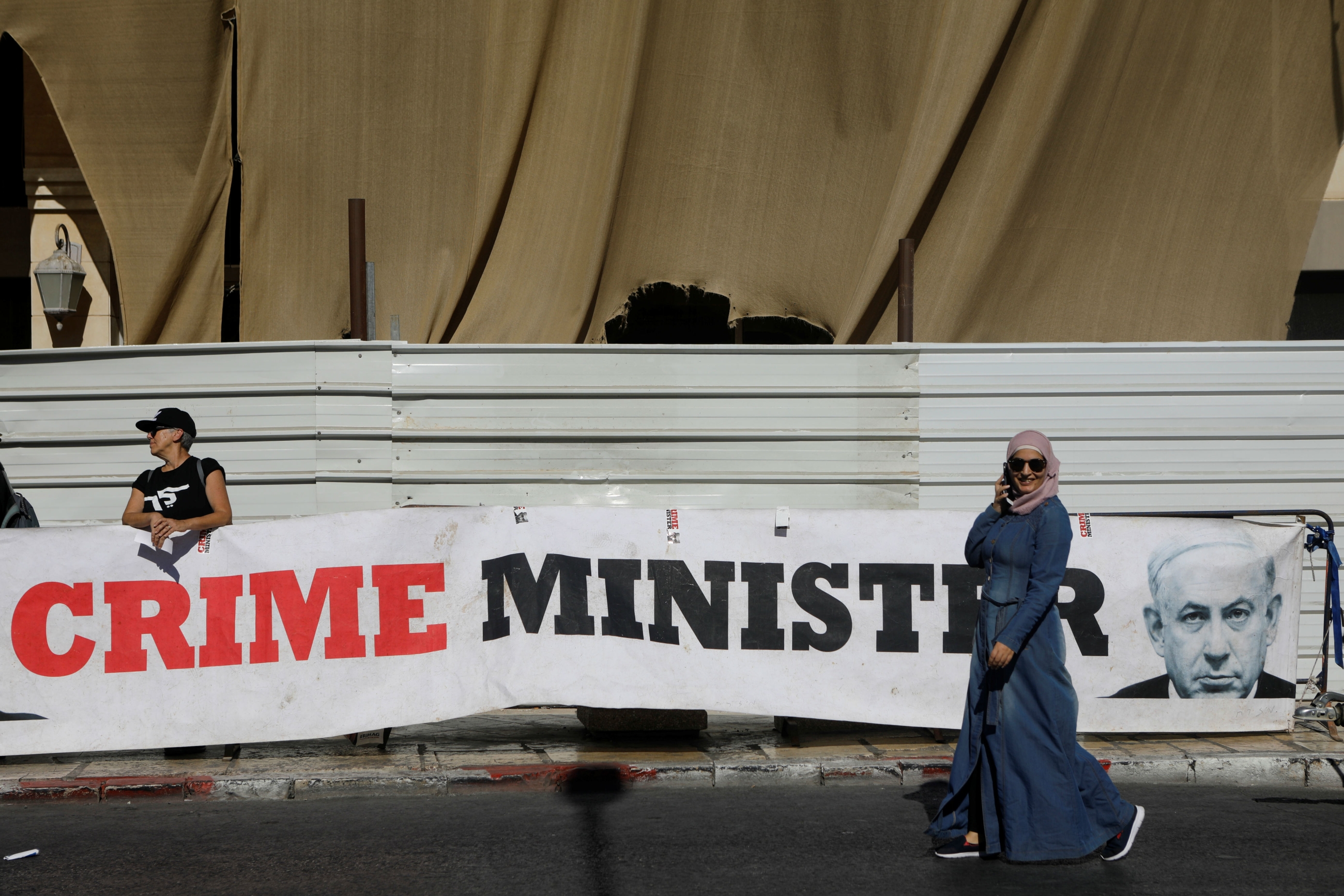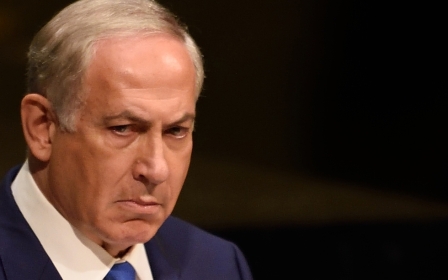Netanyahu's corruption trial to begin 17 March

Israeli Prime Minister Benjamin Netanyahu’s corruption trial is set to begin on 17 March, a fortnight after the country’s parliamentary elections, the justice ministry said on Tuesday.
He is the first sitting prime minister to be indicted, and his trial on three charges of corruption will commence at a time when he may be negotiating with parties to form a government – and fighting for his political survival.
In January, Attorney-General Avichai Mandelblit formally indicted Netanyahu in three cases: Case 1,000, Case 2,000 and Case 3,000.
Netanyahu was charged with breach of trust and fraud in all three corruption cases, as well as bribery in one of the investigations.
In the most significant case, dubbed Case 4000, the premier is accused of making decisions benefiting Bezeq - Israel's largest telecommunications company - in exchange for positive coverage on the website Walla News, which is controlled by the company's former chairman.
New MEE newsletter: Jerusalem Dispatch
Sign up to get the latest insights and analysis on Israel-Palestine, alongside Turkey Unpacked and other MEE newsletters
Netanyahu is accused in Case 1000 of receiving gifts from Israeli-born filmmaker Arnon Milchan and Australian billionaire James Packer in exchange for political favours, including promoting their business interests and helping them obtain visas.
Finally, Case 2000 alleges that Netanyahu struck a deal with the owner of Yedioth Ahronoth to receive favourable coverage from the Israeli newspaper.
Netanyahu's corruption cases
+ Show - HideIsraeli Prime Minister Benjamin Netanyahu is facing potential charges in three cases focused on corruption, known by their codes 4000, 1000 and 2000.
Case 4000: Netanyahu accused of granted regulatory favours to Israel's leading telecommunications company, Bezeq Telecom Israel, in return for positive coverage of him and his wife Sara on a news website controlled by the company's former chairman.
Case 1000: Netanyahu and his wife allegedly wrongfully received gifts from Israeli filmmaker Arnon Milchan and Australian billionaire businessman James Packer, including champagne and cigars.
Case 2000: Netanyahu suspected of negotiating a deal with the owner of Israel's best-selling daily newspaper, Yedioth Ahronoth, for better coverage in return for legislation that would slow the growth of a rival daily newspaper.
Netanyahu could face a maximum sentence of 10 years in prison if he is found guilty of bribery.
He could face three years in prison for fraud and breach of trust.
The prime minister had sought to pass a bill through parliament that would give him immunity from prosecution, though he dropped it last month as it became clear it would not get the support he needed.
Israelis head to the polls on 2 March for the third time in a year, following two inconclusive elections that have left Israeli politics in limbo.
Benny Gantz, Netanyahu's main challenger and head of the Blue and White party, has ruled out joining any Likud party-led government while the prime minister is facing corruption charges.
The prime minister has rejected the charges, and described them as a "witch hunt".
Middle East Eye delivers independent and unrivalled coverage and analysis of the Middle East, North Africa and beyond. To learn more about republishing this content and the associated fees, please fill out this form. More about MEE can be found here.




